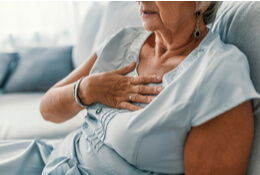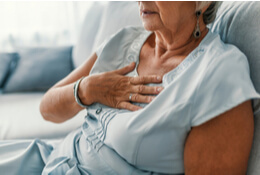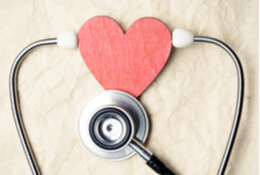Heart Attack Signs

Heart Attack Signs Women Can't Afford To Ignore

Each year heart disease claims the lives of more women than any other health condition. Heart disease can result in heart attacks, yet the symptoms of a heart attack aren’t always obvious, especially among women.
The most common sign of a heart attack is chest pain. In women, that pain may feel like a fullness, squeezing or pressure, or follow the telltale pattern of a crushing ache.
Other heart attack symptoms include shortness of breath, nausea, feeling lightheaded or breaking out in a cold sweat. Discomfort may also radiate in the back, jaw, shoulder, arm or stomach.
How Heart Disease Presents

Because of the heart’s vital role in pumping blood, heart trouble can wreak havoc on other parts of the body. If you experience unexplained physical symptoms like the ones listed below, pay attention — your heart may be trying to tell you something.
Circulation issues. When the heart cannot pump enough blood to meet the body’s needs, poor circulation may cause effects all over the body. Peripheral arterial disease, for example, can cause weakness, skin that is cold to the touch and cramping in the legs and feet. Other cardiovascular diseases can cause swelling, pain, or numbness in the legs, ankles, feet or hands.
Cognitive impairments. When the heart’s ability to deliver a steady supply of blood is hindered by disease, it can also impact brain function. For example, when heart failure reduces blood flow to the brain, it can lead to problems with thinking and memory. If heart failure is not treated promptly, the heart becomes weaker, and what started as a mild mental impairment may progress to vascular dementia.
Fatigue. Unusual tiredness can happen for many reasons, but heart problems are a well-known cause. For instance, fatigue can begin to appear months before a heart attack, as an artery grows increasingly blocked. Fatigue can also be a warning sign of heart failure or heart rhythm disturbances such as atrial fibrillation.
Organ malfunctions. When the heart is not functioning properly, other organs may be affected. For example, low blood pressure due to heart failure can cause chronic kidney problems. Heart illnesses can also impact the intestines, liver and many other organs.
Many people expect heart disease to involve dramatic symptoms such as crushing chest pain, but the signs can be much more subtle. Don’t brush off the following warning signs.
- Anxiety. Heart attacks and other forms of cardiovascular disease that reduce blood flow to the heart can trigger feelings of anxiety and panic.
- Dizziness. Heart failure and heart attack both reduce blood flow to the brain, which can lead to lightheadedness.
- Fainting. Passing out occurs when blood pressure drops dramatically — it is never normal and may be a sign of a heart rhythm disturbance (arrhythmia) or heart attack.
- Persistent cough. A cough that worsens may be caused by fluid buildup in the lungs, a symptom of heart failure.
- Tingling limbs. A “pins and needles” sensation in the arms and legs can hint at an impending heart attack.
If you think you’re having a heart attack, call 911 or go to an emergency room as soon as possible. How you respond to a heart attack could save your life